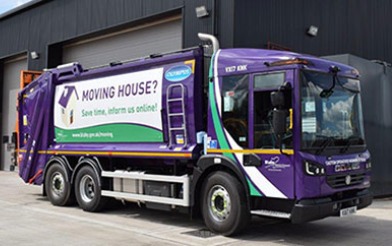Vegetable Oil to power Council fleet

Up to 90% of emissions from Blaby District Council’s vehicle fleet are set to be wiped out with the switch to an alternative fuel.
Hydro treated vegetable oil (HVO) is used in fleet vehicles as an alternative to diesel and is fast becoming more and more popular with local authorities and organisations aiming to considerably reduce their carbon impact.
After approval at the most recent meeting of the Cabinet Executive, Blaby District Council will be changing the majority of its fleet from diesel to HVO fuel over the coming months. Currently, the Council uses over 200,000 litres of diesel per year across all its fleet vehicles which produces around 505 tonnes of carbon dioxide a year. The introduction of HVO as the alternative fuel us expected to see emissions of just 51 tonnes a year.
Transitioning to HVO is expected to cost around an extra £70,000 per year initially, with the Council confident that the 90% saving on emissions is a worthwhile investment to reduce the fleet’s carbon footprint.
The move is part of Blaby District Council’s commitment for the authority to be carbon neutral by 2030, and for the district to be carbon neutral by 2050. An all-electric van is already in the Council’s fleet. The Council will also closely monitor any environmental considerations with the switch to HVO.
Councillor Nigel Grundy, Portfolio Holder for Neighbourhood Services and Assets, said: “We are delighted to approve this measure and join other organisations who have already made this transition to hydro treated vegetable oil.
“We empty more than 2,500,000 bins per year, undertaking so much work across our district whilst using our fleet. Every vehicle we have is important for the work we do but we know that it needs to be as sustainable as possible. HVO is the natural next step for us and we’re also hoping to introduce more electric vehicles in the coming years.”

Councillor Nigel Grundy
Portfolio Holder for Neighbourhood Services and Assets